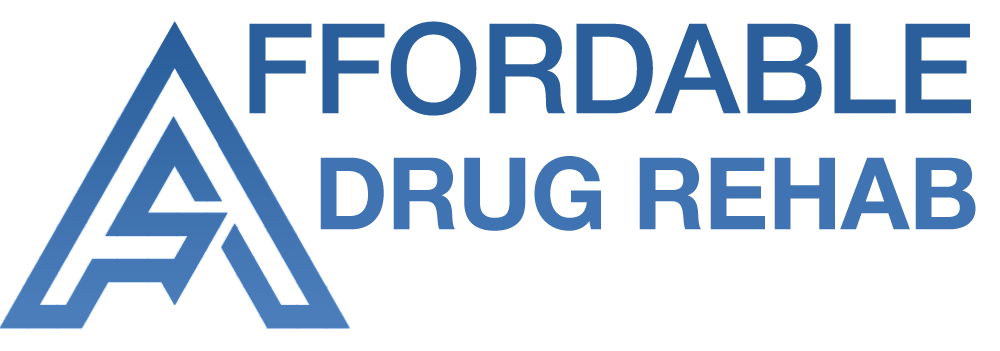Give us a call1 (888) 850-3656
Table of Contents
What are common misconceptions about the cost of drug and alcohol rehab, and how does Affordable Drug Rehabs address these concerns?
Many people believe that drug and alcohol rehab is prohibitively expensive, and only accessible to the wealthy. Here at our affordable drug and alcohol rehab, we’re challenging that misconception head-on. We understand that the financial aspect of treatment can be daunting, which is why we offer a variety of payment options, including sliding scale fees and accepting state-funded health insurance like Medicaid. Our aim is to provide high-quality treatment that is both accessible and affordable, ensuring that financial constraints don’t prevent anyone from getting the help they need.
How does providing evidence-based treatments contribute to the effectiveness of affordable rehab programs?
At the heart of our affordable drug rehab in Mississippi are evidence-based treatments, which are proven through research to be effective for recovery. By focusing on therapies such as cognitive-behavioral therapy and motivational interviewing, we ensure that our patients receive the highest standard of care. These practices are essential for addressing the root causes of addiction, leading to more successful long-term outcomes. Our comprehensive approach, which also includes holistic treatments, allows us to cater to the individual needs of our patients without compromising on the quality of care due to affordability concerns.
Why is ongoing support critical for long-term recovery, and what types of support does Affordable Drug Rehabs provide post-treatment?
Recovery is a lifelong journey, and ongoing support is the cornerstone of sustaining long-term sobriety. At Affordable Drug Rehabs, we offer a range of aftercare services, such as alumni programs and relapse prevention strategies, to help our patients stay on track. These support networks ensure that individuals continue to have access to the resources and community they need to face the challenges of reintegration into society. It’s the enduring relationships and consistent support that often make the difference between relapse and a successful recovery.
How long does the Marchman Act last in Florida?
The Marchman Act is a legal statute in Florida that provides emergency intervention and temporary detention for individuals struggling with substance abuse. The duration of the Marchman Act can vary, but typically, after an individual is taken into custody, they may be held for an assessment for up to 5 days. Following this, a court may order a stabilization period up to 10 days. If further treatment is necessary, the court can order a longer period of care, which can last up to 60 days. It’s important to note that the specifics can vary based on individual circumstances and the court’s discretion.
What are the four types of recovery?
The journey to recovery is unique for everyone, but generally, it can be categorized into four main types: emotional, physical, mental, and spiritual recovery. Emotional recovery involves learning to manage feelings and develop healthy relationships. Physical recovery is about the body healing from the damage caused by substance abuse. Mental recovery focuses on transforming thought patterns and behaviors, and spiritual recovery seeks to find purpose and meaning beyond oneself. Combining these aspects is crucial for a holistic approach to overcoming addiction.
What happens during an intervention?
An intervention is a structured conversation between a person struggling with substance abuse and their loved ones, often guided by a professional. During this meeting, family and friends express their concerns in a non-confrontational manner, offer support, and present a prearranged treatment plan. The goal is to help the individual recognize the extent of their problem and encourage them to accept treatment. It’s a delicate process that requires careful planning and empathy to help the person see that change is both necessary and possible.
What do you say to someone who just got out of rehab?
When someone has just completed rehab, positive reinforcement and encouragement are key. You could say, “I’m proud of the strength you’ve shown in working towards recovery,” or “We’re here to support you as you continue to grow and heal.” It’s important to acknowledge their progress and the effort they’ve put into their journey while also offering your continued support for their ongoing sobriety. Open communication lines are essential as they navigate their new chapter.
How does Affordable Drug Rehab cater to the specific needs of teen girls?
Teen girls face unique challenges in addiction and recovery, which is why our approach is tailored to meet their needs. We provide a safe and understanding environment where young women can feel comfortable sharing their experiences. Our treatment plans for teen girls include not only medical and psychological care but also address the social and developmental issues they face. By fostering a supportive community and encouraging empowerment, we strive to help them build the foundation for a healthy future. Find out more about our affordable drug rehab for teen girls when you call us today.
What should individuals consider when selecting an affordable drug rehab facility?
When searching for an affordable drug rehab facility, individuals should look beyond the cost and ensure that the program offers evidence-based treatments. They should inquire about the qualifications of the staff, the success rates of the facility, and the types of aftercare support available. It’s also important to consider whether the program provides personalized treatment plans that address the individual’s specific needs. Visiting the facility or speaking to staff can also provide insight into the environment and support system offered.
Resources Section
- Substance Abuse and Mental Health Services Administration (SAMHSA): Provides information on substance use disorders and mental health treatment options. www.samhsa.gov
- National Institute on Drug Abuse (NIDA): Offers research and education on drug abuse and addiction. www.drugabuse.gov
- Centers for Disease Control and Prevention (CDC): Offers information on health-related topics including substance abuse and various health concerns. www.cdc.gov
- National Institutes of Health (NIH): Provides a broad range of information on health-related research and resources. www.nih.gov
- U.S. Food and Drug Administration (FDA): Includes information about drug regulations, approvals, and health communications. www.fda.gov
- Office of National Drug Control Policy (ONDCP): Offers federal policy guidance and resources related to drug abuse prevention and treatment. www.whitehouse.gov/ondcp
- National Association of State Alcohol and Drug Abuse Directors (NASADAD): Provides information on state-level drug abuse programs and policies. www.nasadad.org
- American Psychological Association (APA): Provides resources on psychological aspects of substance use disorders. www.apa.org
Affordable Drug and Alcohol Rehab Affordable Drug Rehab in Mississippi

